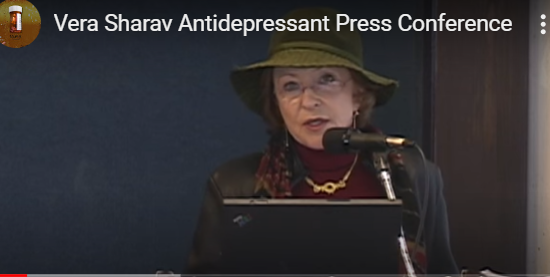Nobel Laureate Scientists Quit Cancer Research Institute-Texas
The Associated Press reports that "at least seven scientists resigned in protest from an embattled Cancer Prevention Research Institute in Texas (CPRIT) that was backed by Governor Rick Perry and Lance Armstrong.
The scientists, among them Nobel laureates, Dr. Phillip Sharp, and CPRIT’s chief scientific officer, Dr. Alfred Gilman who resigned in protest after the institute approved a $20 million grant for an incubator project at M.D. Anderson Cancer Center in Houston without scientific review of the merit of the project.
Dr. Gilman told colleagues in e-mails that he was trying to prevent misuse of taxpayer dollars and funding decisions based on political considerations. The scientists object to the politically driven agenda that puts commercial interest before science. CPRIT has received $3 billion in taxpayer money.
Dr. Brian Dynlacht, another scientist who is leaving, warned that the agency was headed down a path of systematic abuses.
It is worth rmembering that Gov. Perry has shown his predilection for commercially influenced policies. 
Gov. Perry had instituted with lightening speed, a mandatory HPV vaccination policy that would have forced school girls to expose their young innocent bodies to Merck’s controversial vaccine. It was public uproar about the commercial ties that underpinned the mandatory policy that led the legislature to overturn it.
As we have often decried in our various Infomails, the scientific foundation of medicine and America’s medical policies have been corrupted by political and commercial forces that undermine both the integrity of medical science and the therapeutic raison d’etre of medicine.
Americans suffer from commercially driven healthcare policies whose corporate beneficiaries have denigraded safety and respect for individual human lives in favor of high volume, mega profits. As a result. Americans’ health status has declined compared to citizens in the rest of the industrialized nations of the world.
Read our 4-Part series, America’s Healthcare Crisis
Vera Sharav
At least seven scientists resigned in protest last week from Texas’ embattled $3 billion cancer-fighting program, claiming the agency created with the backing of the governor and cancer survivor Lance Armstrong is charting a politically driven path that puts commercial interests before science.The Cancer Prevention Research Institute of Texas has awarded almost $700 million in grants since 2009, making Texas home to the nation’s biggest pot of cancer research funding behind only the federal National Institutes of Health. But how the state agency picks projects has fallen under intensifying scrutiny, beginning in May when its chief scientific officer resigned in protest after it approved – without scientific review – a $20 million commercialization project.
Nobel laureate Dr. Phillip Sharp was among those stepping down last week, writing in his resignation letter that the institute is making funding decisions that carry a "suspicion of favoritism" in how the state is handing out taxpayer dollars. Dr. Bryan Dynlacht, another reviewer who is leaving, warned that the agency is headed down a path of systematic abuses.
"You may find that it was not worth subverting the entire scientific enterprise – and my understanding was that the intended goal of CPRIT was to fund the best cancer research in Texas – on account of this ostensibly new, politically driven, commercialization-based mission," Dynlacht wrote.
Marketable products
Commercialization projects focus on turning research into drugs or other marketable products rather than funding the research itself.
The letters were obtained by the Associated Press through an open records request. Sharp is professor at the Koch Institute for Integrative Cancer Research at the Massachusetts Institute of Technology, while Dynlacht is at the New York University School of Medicine.
In a statement, institute Executive Director Bill Gimson called the accusations false and misinformed.
The Cancer Prevention Research Institute of Texas was created though an ambitious bond measure approved by the state’s voters in 2007. The agency has scientists across the country who help review proposals and choose projects to fund.
In May, chief scientific officer Dr. Alfred Gilman resigned in protest after the institute approved a $20 million grant for an incubator project at M.D. Anderson Cancer Center in Houston. The Nobel laureate told colleagues in e-mails that he was trying to prevent misuse of taxpayer dollars and funding decisions based on political considerations.
No scientific review
It was the largest amount of money the agency has awarded for a single project. But because it was a commercialization project, it didn’t undergo scientific review. The agency has since said the project will undergo such a review.
The resignations come on the eve of potentially significant changes in how the agency allocates funding. The institute has been steering 75 percent of all funding toward research, 15 percent toward commercialization, and 10 percent toward prevention efforts such as breast cancer screenings.
Those funding formulas could change at the agency’s annual conference this month. Gimson has signaled that the time has come to put more money into private commercialization projects, saying that would get new drugs into the hands of patients quicker.
In his statement, Gimson said he wasn’t surprised by the latest resignations given Gilman’s departure. A successor has not yet been named.


